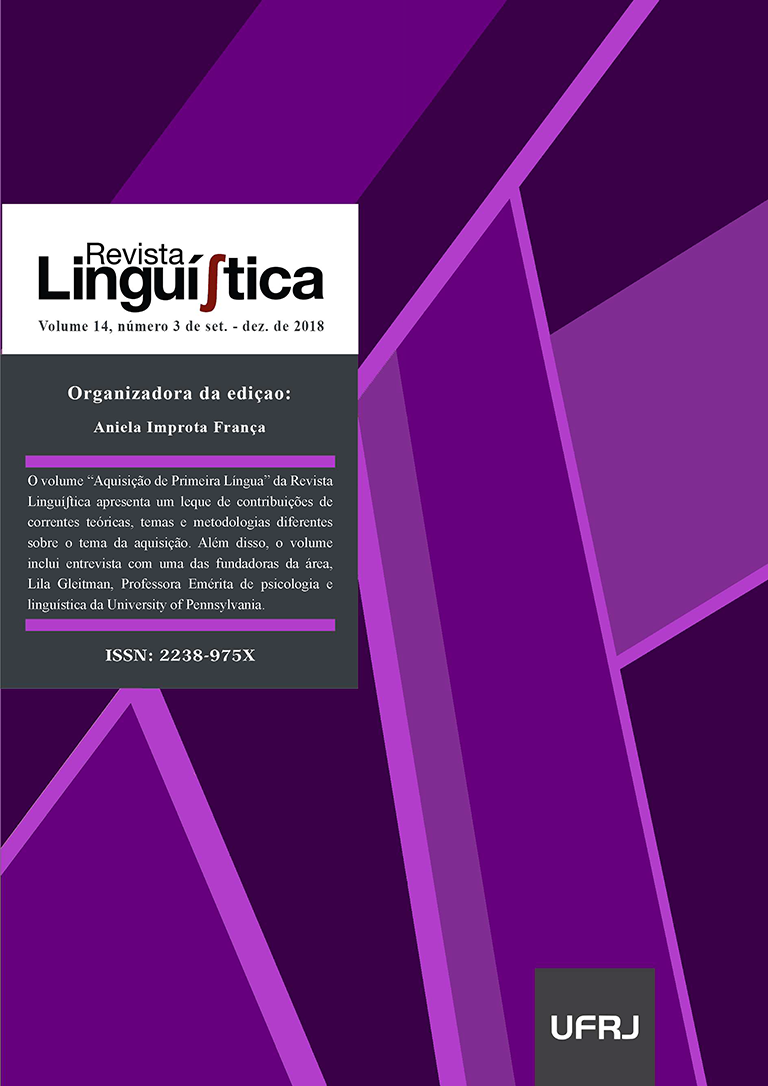"Look up!" Using easy words to explain how we learn hard words and other aspects of language, an interview with Lila Gleitman
DOI:
https://doi.org/10.31513/linguistica.2018.v14n3a22643Keywords:
Interview.Abstract
Lila Gleitman is undoubtedly one of the world’s foremost experts on language acquisition and developmental psycholinguistics. Starting in the 60s, she rose to prominence by bringing experimental methods from psychology to bear on the questions raised by linguistics and philosophers of language, namely how children could learn the rules of a language when there is so much ambiguity both in the language and in the world surrounding them. She has done much work in this vein, focusing both on how children learn words that refer to abstract concepts such as think or believe, as well as how they acquire concepts when they lack certain inputs, such as in the case of blind or deaf children. Though her contributions and collaborations span many questions and problems in language acquisition, she is perhaps best known for proposing and showing that, from an early age, children are capable of using syntactic cues to learn the meaning of words, particularly verbs (especially those she describes as “hard words” because they are difficult or impossible to observe, like think). Through this process, termed syntactic bootstrapping, young children would be able rely on the linguistic context in which the words appear to discover aspects of the meanings of words that they don’t know yet (e.g., Landau & Gleitman, 1985; Gleitman, 1990; Gleitman, Cassidy, Nappa, Papafragou, & Trueswell, 2005). More specifically, Lila and her collaborators proposed that syntax could serve as a “zoom lens” allowing language learners to figure out which part of the world is being talked about, which would then help them identify candidate meanings for novel words (e.g., Fisher, Hall, Rakowitz, & Gleitman, 1994).
---
DOI: http://dx.doi.org/10.31513/linguistica.2018.v14n3a22643
Downloads
Published
Issue
Section
License
Authors who publish in the Revista Linguí∫tica agree with the following terms:
The authors maintain their rights, ceding to the journal the right to first publication of the article, simultaneously submitted to a Creative Commons license permitting the sharing with third-parties of published content as long as it mentions the author and its first publication in the Revista Linguí∫tica.
Authors may enter into additional agreements for the non-exclusive distribution of their published work (for example, posting in online institutional or non-profit repositories, or book chapters) so long as they acknowledge its initial publication in the Revista Linguí∫tica.

The journal Revista Linguí∫tica is published by the Post-Graduate program in Linguistics of UFRJ and employs a Creative Commons - Attribution-NonCommercial 4.0 International (CC-BY-NC).









